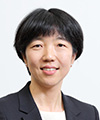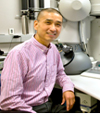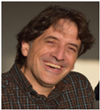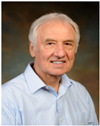It is our great pleasure to invite you to participate in the international symposium, "Structural Biological Dynamics: From Molecules to Life with 60 trillion Cells".
Recently, our CREST and PRESTO programs have been tackling the understanding of hierarchical dynamics (from molecules to life with 60 trillion cells) of biological phenomena via interdisciplinary analyses. The symposium focuses on recent developments in systems biology, synthetic biology, structural biology, and other relevant areas. It also aims to increase the exchange of scientific knowledge between local and international scientists in order to provide an integrated approach on understanding the hierarchical biological dynamics, and to discuss various approaches to further the development of those areas. This will be a great opportunity for all of you to acquire the latest information and recent advances through networking and oral/poster presentation.
Don't miss this valuable opportunity! We look forward to seeing you at the Symposium!





Greeting
We are delighted to invite you to participate in the "JST CREST-PRESTO joint international symposium-Structural Biological Dynamics: From Molecules to Life with 60 trillion Cells" to be held on November 5-6, 2015, in Tokyo, Japan. The CREST and PRESTO are some of JST's main strategic basic research programs, striving to lead the world in research excellence. The symposium features hot topics within highly relevant areas of systems biology, synthetic biology, and structural biology. This time, we are inviting leading scientists from overseas, and from four CREST-PRESTO programs, who are exploring biological principles to address current and future developments. We expect this symposium to provide a platform for networking and for fostering research collaborations with participants or with researchers worldwide.
We are looking forward to welcoming you in Tokyo for this exciting event.
Yoshiko Shirokizawa
Executive Director of JST

Yifan Cheng
University of California San Francisco 
Dr. Yifan Cheng is currently an Associate Professor at Department of Biochemistry and Biophysics, University of California San Francisco (UCSF). He received his Ph.D. degree in 1991 from Institute of Physics, Chinese Academy of Sciences (CAS). From 1991 to 1996, he was a postdoctoral fellow at Department of Physics, University of Oslo (NTNF Fellow), and Max-Planck-Institut fur Metallforschung (Alexander von Humboldt Fellow). In 1996, he changed his research field from physics to structural biology, and received further training in electron cryo-microscopy (cryo-EM) from Professor Kenneth Taylor at Florida State University and Professor Yoshinori Fujiyoshi at Kyoto University. In 1999, he joined the laboratory of Professor Thomas Walz at Harvard Medical School. In 2006, he became a faculty at UCSF and stayed there ever since. His laboratory studies three-dimensional structures of macromolecule by single particle cryo-EM.

Ursula Klingmuller
German Cancer Research Center 
Prof. Dr. Ursula Klingmuller heads the division of "Systems Biology of Signal Transduction" at the German Cancer Research Center (DKFZ) in Heidelberg. She started her career as a Senior Scientist at Harvard Medical School and the Whitehead Institute for Biomedical Research in Boston, USA, and afterwards headed an independent junior group at the Max-Planck-Institute for Immunology in Freiburg, Germany. She employs data-based mathematical modeling to elucidate dynamic properties of EpoR signaling and the consequence of cellular decisions. Her group focuses on standardization of cellular systems and quantitative data generation. Prof. Dr. Ursula Klingmuller received FEBS Anniversary Prize and serves as an elected member of the German Research Foundation (DFG) "Hinterzartner Kreis".

Andrea Musacchio
Max-Planck Institute of Molecular Physiology 
Andrea Musacchio is a Scientific Member of the Max Planck Society and Director of the Department of Mechanistic Cell Biology at the Max Planck Institute of Molecular Physiology in Dortmund, Germany (since 2010). Musacchio is also Honorary Professor at the University of Duisburg-Essen (since 2013). Musacchio carried out PhD studies with the late Matti Saraste at the European Molecular Biology Laboratory (1990-1995) and postdoctoral work with Stephen C. Harrison at the Harvard Medical School (1995-1998). Before moving to his current location in Germany, he directed a laboratory at the European Institute of Oncology in Milan (1999-2010). Musacchio has been elected EMBO Member and is the recipient of grants of the European Research Council. His current research focuses on structural and functional characterization of proteins involved in the control of cell division and of chromosome segregation.

Nahum Sonenberg
McGill University 
Prof. Dr. Nahum Sonenberg joined the Roche Institute of Molecular Biology in Nutley after receiving his Ph.D. at the Weizmann Institute of Science. He moved to McGill University in 1979, and is today a James McGill Professor in the Department of Biochemistry and the Rosalind and Morris Goodman Cancer Centre. Over the years, Prof. Sonenberg has collected a number of prestigious prizes including the Robert L. Noble Prize from the National Cancer Institute of Canada (2002), the Isaak-Walton-Killam Award for Health Sciences (2005) and the Gairdner Foundation International Award (2008); the Lewis S. Rosenstiel Award (2011); the Royal Society of Canada's McLaughlin Medal (2013): and the Wolf Prize in Medicine (2014). Notably, he discovered many key factors such as mRNA 5' cap-binding protein (eIF4E), internal ribosome entry site (IRES) mode of translation and so on. His current research focuses on translational control in cancer, oncolytic viruses as anti-cancer drugs, microRNA control of translation, and translational control of plasticity, learning and memory.

Ian A. Wilson
Scripps Research Institute 
Prof. Ian Andrew Wilson is Chair of the Department of Integrative Structural and Computational Biology at The Scripps Research Institute. Prof. Wilson's research on influenza virus hemagglutinin first began at Harvard University as a postdoctoral fellow, after receiving his PhD degree from Oxford University. He joined the Scripps Research Institute in La Jolla in 1982. Since 2000, he has directed the Joint Center for Structural Genomics (JCSG) that has pioneered innovative new methods for high throughput structural studies, including x-ray and NMR. His research career has focused on the recognition of microbial pathogens by the immune system. His current focus is on recognition of viral pathogens, including HIV, influenza virus and HCV, by broadly neutralizing antibodies to further vaccine design. He is a Fellow of Royal Society of London Fellow, a Fellow of the Royal Society of Edinburgh, and on the Board of Directors and Scientific Advisory Board of Keystone Symposia.

Feng Zhang
Massachusetts Institute of Technology / Harvard University 
Feng Zhang is the Keck Career Development Professor of Biomedical Engineering at MIT, an Investigator of the McGovern Institute for Brain Research, a New York Stem Cell Foundation-Robertson Investigator, and a Core Member of the Broad Institute of MIT and Harvard. As a graduate student at Stanford University, Zhang worked with advisor Karl Deisseroth to invent a set of technologies for dissecting the functional organization of brain circuits. His lab works on developing and applying disruptive technologies including optogenetics and genome engineering (TALE and CRISPR) to understand nervous system function and disease. Zhang's long-term goal is to develop novel therapeutic strategies for disease treatment. He obtained a bachelor's degree from Harvard University and a PhD in chemistry and bioengineering from Stanford University. Before joining the MIT faculty he was a junior fellow of the Harvard University Society of Fellows. He is widely recognized for the development of molecular technologies including optogenetics and CRISPR-Cas9, including receiving the Waterman Award from the National Science Foundation, the Perl/UNC Prize in Neuroscience, and the Gabbay Award in Biotechnology.